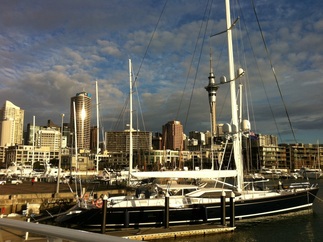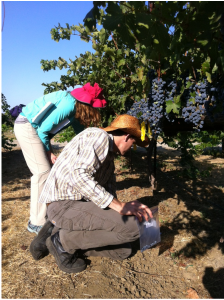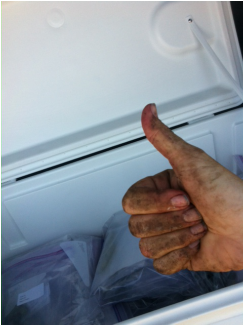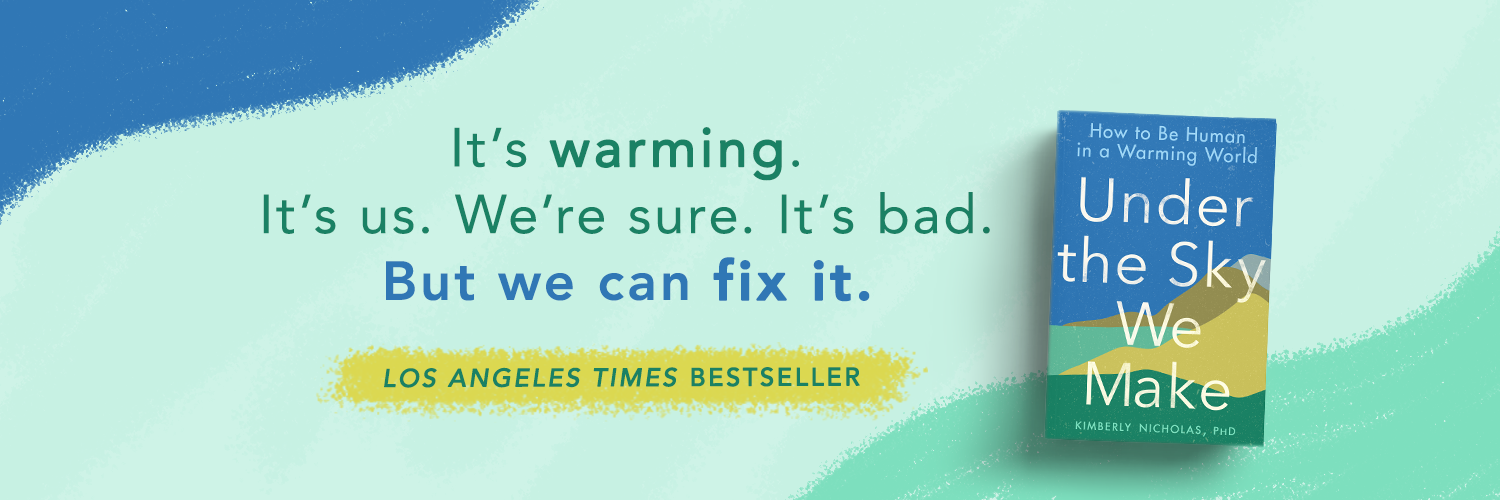The Full Scoop (aka, TL;DNR):
I'm incredibly lucky to have the opportunity to participate in a series of meetings right now in Auckland, New Zealand. First up was the Science & Diplomacy Symposium on August 27th, and the Global Science Advice to Governments meeting August 28-29. These two meetings together explore the role of science in shaping public policy, and responding to needs in the public arena, from practical observations on how scientists can better contribute to making the world a better place, to the role of scientists from situations of crisis to conflicting ideology. I'll be live-Tweeting updates from the conference under the hashtag #SciAdvice14. I'm in Auckland at the invitation of the International Council for Science (ICSU) thanks to the generous support of the German Research Foundation (DFG) to chair a panel on issues for early-career scientists at their General Assembly meeting, which is held once every three years (this year runs from Sunday night, August 31, through Wednesday, September 3). ICSU is a non-governmental organization with the mission to "strengthen international science for the benefit of society" through promoting international research collaboration, science for policy, and making science more open, equitable, and ethical throughout the world. Its members consist of over 120 national scientific academies of distinguished scholars elected to provide scientific advice and service to their countries (including the National Academy of Sciences in the US, and the Royal Swedish Academy of Sciences, who award most of the Nobel Prizes). Other members include international scientific unions, which focus on promoting scientific subject areas (like the International Union of Biological Sciences). The 2014 ICSU General Assembly will include discussion of the Rio+20 Sustainable Development Goals, intergovernmental assessments like the Intergovernmental Panel on Climate Change, and the new international research initiative Future Earth. The Early Career Panel will include a diverse group of researchers on Wednesday, September 3 (see participants below). We have 45 minutes to discuss issues facing early-career scientists across disciplines, institutions, and countries, and start the conversation about some of our proposed solutions. Among other issues, we'll be discussing challenges in research funding, mentorship, citation metrics as a means of evaluation, and linking research and teaching. We're collecting more ideas for issues to raise in this forum using the hashtag #EarlyCareerSci on Twitter, and we'd love your input (let's say by 05:00 GMT on Tuesday, September 2nd, as we're a day ahead of Europe and North America here in New Zealand!). Thanks for your input, and stay tuned for updates from the ICSU General Assembly under the #ICSUGA hashtag on Twitter. My colleagues on the panel include: 1. Fola Babalola, a postdoctoral fellow at the Center for Environmental Economics and Policy in Africa at the University of Pretoria. Fola works on forest socio-economics. 2. Yvonne Grunder is a Royal Society Research Fellow in the Department of Physics at Liverpool University, where she works on understanding atomic-scale structure and reactions. 3. Christine Jasoni, a senior lecturer in the Department of Anatomy at the University of Otago in New Zealand. Christine works on how challenges in the womb can affect lifelong disease risk. 4. Wilma Waterlander, a research fellow at the National Institute for Health Innovation at the University of Auckland in New Zealand. Wilma works on food policies to promote healthier eating and greater environmental sustainability. 5. Jianzhong Xu, a visiting scholar at the Department of Environmental Toxicology at the University of California-Davis. Jianzhong works on chemical analyses from fog to Himalayan glaciers. The end is drawing near for our first field season for the Vitis project, led by Lizzie Wolkovich at Harvard, where we're looking at the timing of development (phenology) for over 100 different varieties of grapevines at the teaching vineyard at the University of California- Davis. Sampling from a common garden like this lets us control for climate, soil, management, and other variables, so we can learn more about how the vines respond to the environment. Over 100 varieties of the world's most commercially important grapevines are planted side-by-side here in this one vineyard; my mom calls it the "Noah's Ark of grapevines." My collaborator Dylan Burge, from the California Academy of Sciences (above left), will be doing genomic analyses to search for the genetic basis of this environmental response. We hope that the results will help us identify relationships that could be useful for adapting viticulture to climate change, perhaps better matching the development and ripening of the vine with a changing environment.
We've already made observations on earlier phenological stages (budburst, where the vines first start growing in the spring; bloom, when the flowers that will develop into individual berries are visible; and veraison, when the berries start changing color and accumulating sugar). The last stage to monitor is ripening, which we're measuring now by taking berry samples in the field and analyzing them for their sugar content in the lab. Different varieties can ripen at very different rates, and achieve different sugar levels at ripeness; generally cool-climate grapes like Riesling ripen earlier and at lower sugar levels than warm-climate ones like Tempranillo. After Lizzie did a heroic singlehanded field campaign for the first sampling date a few weeks ago, it took three of us (Dylan, Teri Barry, and me) to match her for the second round! It was great to get out in the vineyard for a morning and make a small contribution on the ground to the fieldwork that Dylan and Lizzie have been running while I contribute from afar in Sweden. |
Categories
All
Archives
November 2023
|
KIM NICHOLAS



 RSS Feed
RSS Feed

